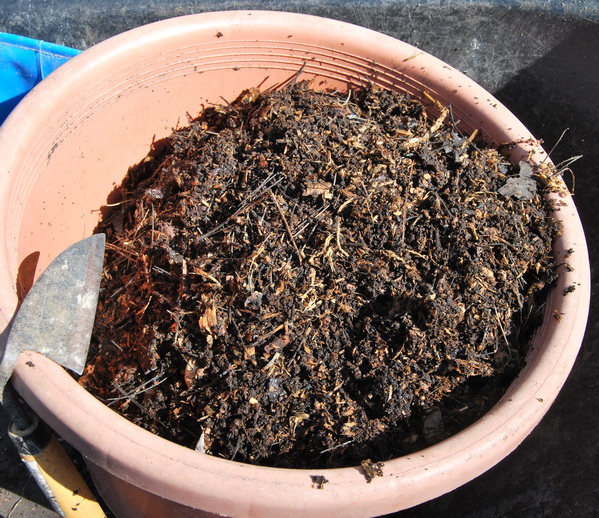If you make the effort to make good compost, the benefits are endless: for your garden, the environment AND your hip pocket.
FOR YOUR GARDEN
Compost acts almost like an innoculant for your soil, adding heaps of micro-organisms to your garden. It is these little critters that have been feeding on your compost contents and helping to break it down. When added to your garden, they help to continue the breakdown of this lovely organic matter and turn it into HUMUS.
Humus acts as the conduit between the minerals locked in your soil and the plant roots that can't otherwise access it in its mineral form. The more humus in your soil, the more your plants thrive because the minerals that are in all soils become active and available to your plants.
Humus also acts like a sponge, holding water in your soil so that plants' roots can use the water before it drains away. It can hold up to 7 times its volume in water.
Compost also adds macro-organisms, such as worms, into your soil. They either got moved when you used the compost or migrated to where the compost was spread. Worms act to aerate the soil as they channel through, leaving their nutrient-rich droppings behind in their wake.
Just like the human gut needs good bacteria, compost does this for your soil.
FOR THE ENVIRONMENT
Organic waste, such as garden clippings and kitchen scraps, when transported to landfill, not only contribute to air pollution in the transportation, but quite significantly contribute to greenhouse gases as they decompose in landfill. This is because these wastes get buried under more and more refuse and their decomposition results in the production of methane gas. Methane is at least 22 times more potent as a greenhouse gas than carbon dioxide.
Keeping your organic waste at home and composting it is a hugely positive effort you can make in minimising the release of excessive greenhouses gases.
FOR YOUR HIP POCKET (SAVING MONEY)
Good gardeners know the value of great compost and if you make your own, you don't need to buy it in.
Use it:
- when preparing new vegie beds.
- as a top-dressing between seasonal plantings. After removing old vegie plants, replenish the soil by adding organic matter in the form of compost, to make up for all the vegetation that you have removed.
- to bulk out potting mix. Good potting mix can be expensive, but you can use some of your compost (up to 50%) mixed with the potting mix to make it go further.
- to make a liquid feed for your plants, steep a shovel load of good compost into a large bucket of water. Give it a stir, wait a couple of weeks and then use this compost tea to give your plants a bit of pep! (You may need to dilute it if it is very dark).

